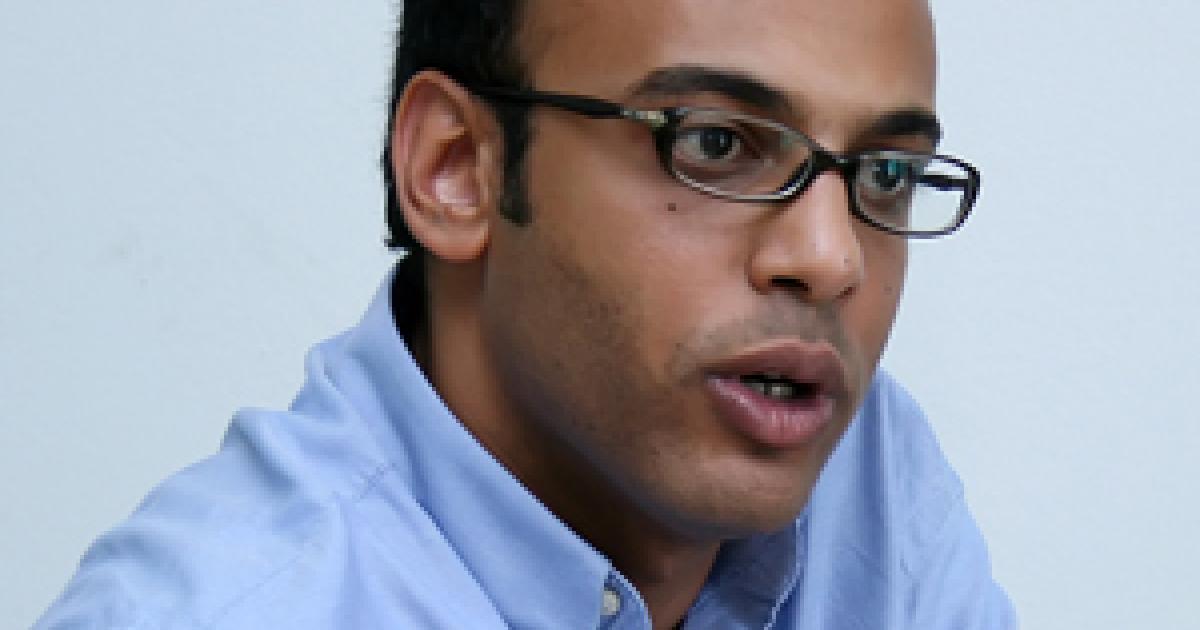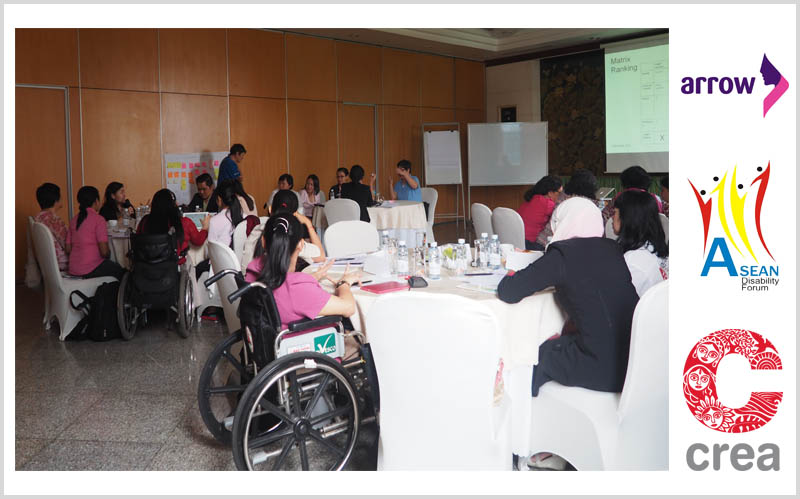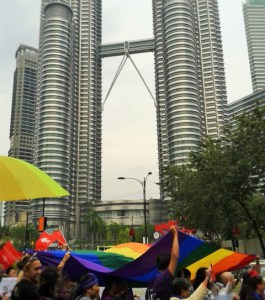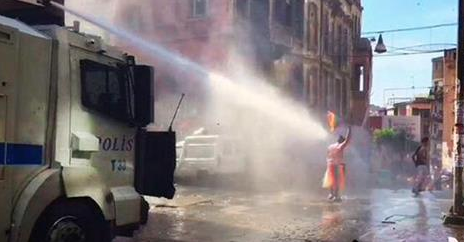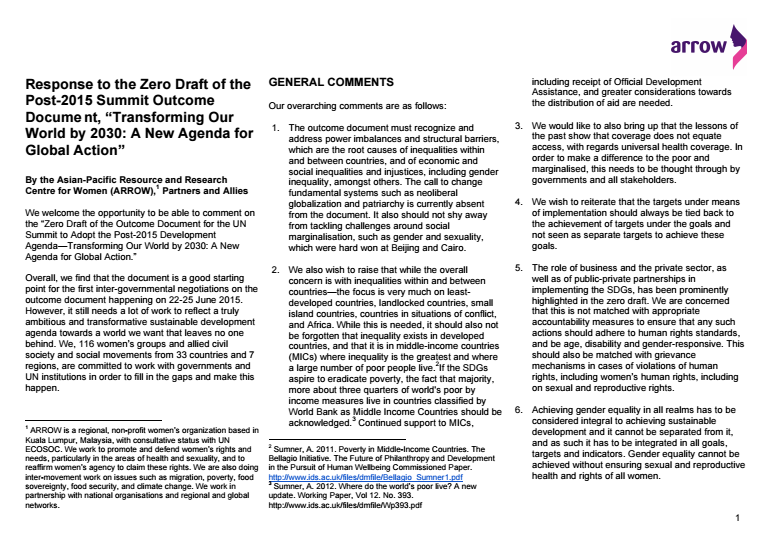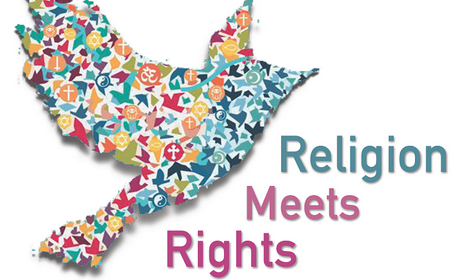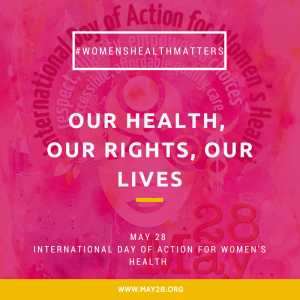99 Organizations from 31 Countries Support Women & LGBTI People’s Call for Peace in Turkey
27 November 2015
Violence in the Middle East and Turkey escalates with each passing day. While the world’s eyes turn to the tragic attacks in Paris, what we are experiencing at present in our country is much more extreme than the past, and we are deeply worried about what tomorrow will bring. It seems like our very future, our fundamental human rights, and the most basic right to life are under threat. For the past 40 years, Turkey has been in a state of war that has deeply affected our society, especially women and girl-children in eastern Turkey, and it has become impossible to prevent severe rights violations. Since Turkey’s June 7th 2015 general elections, in a context of escalating violence and military operations, which have continued after the recent November 1stsnap elections, the Human Rights Association reports that: 262 civilian lives have been lost (602 lives in total, including soldiers, police and Kurdish militants); 759 people have been wounded; 5,713 have been detained; and 1,004 people arrested.[1]
In these conflicts in the Kurdish region, concentrated mostly in the provinces of Diyarbakır, Hakkari and Şırnak, in the towns of Cizre, Silvan, Nusaybin, Silopi and many others, some settlements have endured blockades and 24-hour curfews of over 10 days, threatening the lives of civilians, especially women, girl-children, and LGBTI people. While the people of these regions cannot even obtain the most basic necessities for life, like water, food, and electricity, thousands of them are being forced to leave their homes. Additionally, they cannot access health services: it has been reported that between August and October 2015, 300 women in the towns of Hakkari province (Şemdinli and Yüksekova) who could not leave their homes have had miscarriages or are in danger of suffering miscarriages due to the extreme stress and trauma they are undergoing.[2]
As Turkey’s women’s and LGBTI movements, we have repeatedly raised our voices to call for peace. However, at this moment, it is critically urgent that international solidarity networks be established with the women living in these conflict zones. 99 organisations from 31 countries have supported this urgent call and we have sent the following letter with their signatures to Turkish President and Prime Minister. We have also shared the Press Statement with the media in Turkey on 26th November 2015.
Honourable President Recep Tayyip Erdoğan
Honourable Prime Minister Ahmet Davutoğlu
The conflict in the eastern and south-eastern regions of Turkey has been causing civilians to lose their lives, be wounded, and has threatened their basic survival; women, girl-children and LGBTI are particularly affected. We are well aware from our own experience that this kind of escalating violence can greatly threaten women’s lives. This extremely worrying situation prompts us to act, as organisations working toward empowerment of women and LGBTI all over the world.
We remind you of Turkey’s international obligations under SR 1325, UN GA Res 65/283 (2011) co-sponsored by Turkey and Finland, and the most recent resolution adopted in Oct. 2015, Res. 2242, which call for the peaceful resolution of disputes, and for inclusivity and women’s participation specifically in peacemaking.
With this letter, we appeal to you to stop all attacks directed toward civilians in the country, we call on you return to ceasefire conditions and resume the dialogue and negotiation process that was initiated during the previous administration in 2013.
THE ORGANISATIONS MADE CALL FROM TURKEY
- Adana Women’s Shelter and Association for Solidarity/Consultation – Adana Kadın Dayanışma Merkezi ve Sığınma Evi Derneği
- Adıyaman Association of Women and Life – Adıyaman Kadın Yaşam Derneği
- Altı Nokta Kibele Wmen’s Magazine – Altı Nokta Kibele Kadın Dergisi /
- Amargi İzmir/ Amargi Izmir
- Amida Women’s Consultation Center/ Amida Kadın Danışma Merkezi
- Ankara Feminist Collective – Ankara Feminist Kolektif
- Antalya Women’s Consultation Center and Solidarity Association – Antalya Kadın Danışma Merkezi ve Dayanışma Derneği
- Ayvalık Independent Women’s Initiative – Ayvalık Bağımsız Kadın İnisiyatifi
- Women’s Peace Initiative – Barış İçin Kadın Girişimi (BIKG)
- Batman Women’s Solidarity Association – Batman Kadın Dayanışma Derneği
- Bodrum Women’s Solidarity Association – Bodrum Kadın Dayanışma Derneği
- Buca Evka -1 Women, Culture and Solidarity Association – Buca Evka-1 Kadın Kültür ve Dayanışma (BEKEV)
- Çiğli Evka -2 Women Culture Association – Çiğli Evka-2 Kadın Kültür Derneği (ÇEKEV)
- Ceren Women Association – Ceren Kadın Derneği
- Association to Combat Sexual Violence – Cinsel Şiddetle Mücadele Derneği
- Association for Gender Equality Watch – Cinsiyet Eşitliği İzleme Derneği (CEID)
- Diyarbakır Metropolitan Municipality Department of Women’s Politics – Diyarbakır Büyükşehir Belediyesi Kadın Politikaları Daire Başkanlığı
- Diyarbakır Metropolitan Municipality Department of Combat with Violence Against Women – Diyarbakır Büyükşehir Belediyesi Kadına Yönelik Şiddetle Mücadele Şube Müdürlüğü
- Ergani Selis Solidarity Foundation – Ergani Selis Dayanışma Derneği
- Women from Workers Movement Party – Emekçi Hareket Partili Kadınlar
- Erktolia – Erktolia
- Erzincan Katre Women’s Group – Erzincan Katre Kadın Oluşumu
- Esender Women Center / Ekin Wan Consultation Center – Esendere Kadın Merkezi / Ekin Wan Danışma Merkezi
- Home-Based Working Women’s Group – Ev Eksenli Çalışan Kadınlar Çalışma Grubunu
- Fethiye Free Women and Life Association – Fethiye Özgür Kadın ve Yaşam Derneği
- Filmmor Women’s Cooperative – Filmmor Kadın Kooperatifi
- Rainbow Women Association – Gökkuşağı Kadın Derneği
- Hebun LGBT Diyarbakır – Hebun LGBT Diyarbakır
- İstanbul LGBTT Solidarity Foundation -İstanbul LGBTT Dayanışma Derneği
- Human rights Association Women Sekretariat – İnsan Hakları Derneği Kadın Sekreterliği
- Human Rights Association (İHD) Ankara Branch Women’s Committee – İnsan Hakları Derneği Ankara Şube Kadın Komisyonu
- İmece House Workers’ Union – İmece Kadın Dayanışma Derneği
- Izmir Independent Women’s Initiative – İzmir Bağımsız Kadın İnisiyatifi
- Izmir Women’s Solidarity Association – İzmir Kadın Dayanışma Derneği
- Women’s Solidarity Foundation – Kadın Dayanışma Vakfı
- Women’s Education and Labor Association – Kadın Eğitim ve İstihdam Derneği (KEID)
- Women’s Labor and Employment Initiative Platform – Kadın Emeği ve İstihdamı Girişimi (KEİG) Platformu
- Feminist Researchers Studying Women’s Labor – Kadın Emeği Çalışan Feminist Araştırmacılar (KEFA)
- Women’s Labor Collective – Kadın Emeği Kolektifi
- Women for Women’s Human Rights – WWHR New Ways -Kadının İnsan Hakları-Yeni Çözümler Derneği (KIH-YÇ)
- Women’s Solidarity Foundation – Kadınlarla Dayanışma Vakfı (KADAV)
- Women’s Free Assembly – Kadın Özgürlük Meclisi (KÖM)
- Women Writers Association – Kadın Yazarlar Derneği
- Kaos Gay and Lesbian Cultural Research and Solidarity Association – Kaos Gey ve Lezbiyen Kültürel Araştırmalar ve Dayanışma Derneği (KAOS GL)
- Kapadokya Women’s Solidarity Association – Kapadokya Kadın Dayanışma Derneği
- Karya Women’s Association – Karya Kadın Derneği
- Confederation of Public Workers Union Women’s Assembly – KESK Kadın Meclisi
- Konak City Council Women’s Assembly – Konak Kent Konseyi Kadın meclisi
- Free Women’s Congress – Kongre ya Jinên Azad (KJA- Özgür Kadınlar Kongresi)
- Lambdaİstanbul LGBTI Solidarity Association – Lambdaistanbul LGBTİ Dayanışma Derneği
- Mardin Metropolitan Municipality Directorate of Women’s Policies – Mardin Büyükşehir Belediyesi Kadın Politikaları Başkanlığı
- Mardin Derik Peljin Women’s Center – Mardin Derik Peljin Kadın Merkezi
- Muğla Women’s “It’s My Labor” Association – Muğla Emek Benim Kadın Derneği
- Muğla Menteşe Women’s Assembly – Muğla Menteşe Kadın Meclisi
- Muş Women Association – Muş Kadın Derneği
- Muş Women’s Roof – Muş Kadın Çatısı Derneği
- Moira Sakarya Women’s Solidarity Association – Moira Sakarya Kadın Dayanışma Derneği
- Pink Life LGBTT Solidarity Association – Pembe Hayat LGBTT Dayanışma Derneği
- The Association of Social Policies, Gender Identity and Sexual Oriantation Studies- Sosyal Politikalar Cinsiyet Kimliği ve Cinsel Yönelim Çalışmaları Derneği
- Sosyalist Yeniden Kuruluş Partisi Kadın Meclisleri – Women’s Assemblies of Socialist Re-Creation Party
- Sosyalist Kadın Meclisleri – Socialist Women’s Assemblies
- Şırnak Municipality Zahide Women Consultation Center – Şırnak Belediyesi Zahide Kadın Danışma Merkezi
- Psychologists Association for§ Social Solidarity Women’s Committee – Toplumsal Dayanışma İçin Psikologlar Kadın Komisyonu (TODAP)
- Flying Broom Women’s Communication and Research Association – Uçan Süpürge Kadın İletişim ve Araştırma Derneği
- Life Cooperative for Women, Environment, Culture, and Management/Operation – Yaşam Kadın Çevre Kültür ve İşletme Kooperatifi (Yaka-Koop)
- Green Left Women – Yeşil Sol Kadınlar
- Yoğurtçu Women’s Forum – Yoğurtçu Kadın Forumu
- Women From the Federation of 78’s – 78’liler Federasyonu’ndan Kadınlar
ORGANISATONS FROM WORLD SUPPORTING THE CALL
- Aboriginal Rights Coalition – (Austria)
- Association of Women in Development (AWID)- (Canada)
- Asociación Egeria Desarrollo Social – (Spain)
- Autonomous Women’s Centre – (Serbia)
- Bridges of Peace International – (USA)
- Czech Women´s Lobby – (Czech Republic)
- Coalition for Sexual and Bodily Rights in Muslim Societies – (Pakistan, Sudan, Morocco, Tunisia, Bangladesh, Egypt, Indonesia, Lebanon, Malaysia, Jordan, Palestine, Phillipines, Algeria, Yemen, Turkey)
- Connectas-Brazil
- El Nadeem Center For Rehabilitation For Victims Of Violence –(Egypt)
- French Coordination for the European Women Lobby– (France)
- Gender at Work – (Canada)
- glokal e.V., Berlin – (Germany)
- Isis-Women’s International Cross Cultural Exchange (ISIS-WICCE) – (Uganda)
- Just Associates (JASS) – (USA)
- Justice, Human Rights and Gender, Civil Association – (Mexico)
- Lesbenberatung e.V.Berlin – (Germany)
- League of Women-Lawyers – (Tajikistan)
- Network for European Women’s Lobby – Serbia, (coalition of 27 women CSOs)
- Rural Women’s Network (RUWON) – (Nepal)
- Rutgers for Sexual and Reproductive Health and Rights – (Nedherlands)
- Qadims Lumiere School and College Peshawar – (Pakistan)
- Urgent Action Fund for Women’s Human Rights – (USA)
- Slovene Union of University Women (SUUW) – (Slovenia)
- Sisters Arab Forum for Human Rights (SAF) – (Yemen)
- Women’s Lobby of Slovenia – (Slovenia)
- Women’s Global Network for Reproductive Rights – (Nedherlands)
- Widows for Peace through Democracy – (Britain)
- Women in Black against War-London Group- (Britain)
- VISION – (Pakistan)
- Women against Violence Network Serbia, (27 Kadın Örgütünün olduğu Koalisyon) – (Serbia)
- Združenje univerzitetnih izobraženk Slovenije (ZUIS) – (Slovenia)
[1] “İHD: 7 Haziran’dan Beri 262 Sivil Öldü” (İHD: “Since 7th June, 262 civilians killed), BİANET, 12 Nov. 2015; “İHD raporu: 7 Haziran’dan beri 602 kişi hayatını kaybetti”(İHD Report: 602 people lost their lives since 7th June), Demokrat Haber, 12 Nov. 2015
[2] “Savaşta, doğmamış çocuklar da ölüyor”(In war, even unborn children are dying), Evrensel, 11 Nov. 2015
* * * * *
Download in PDF here.

